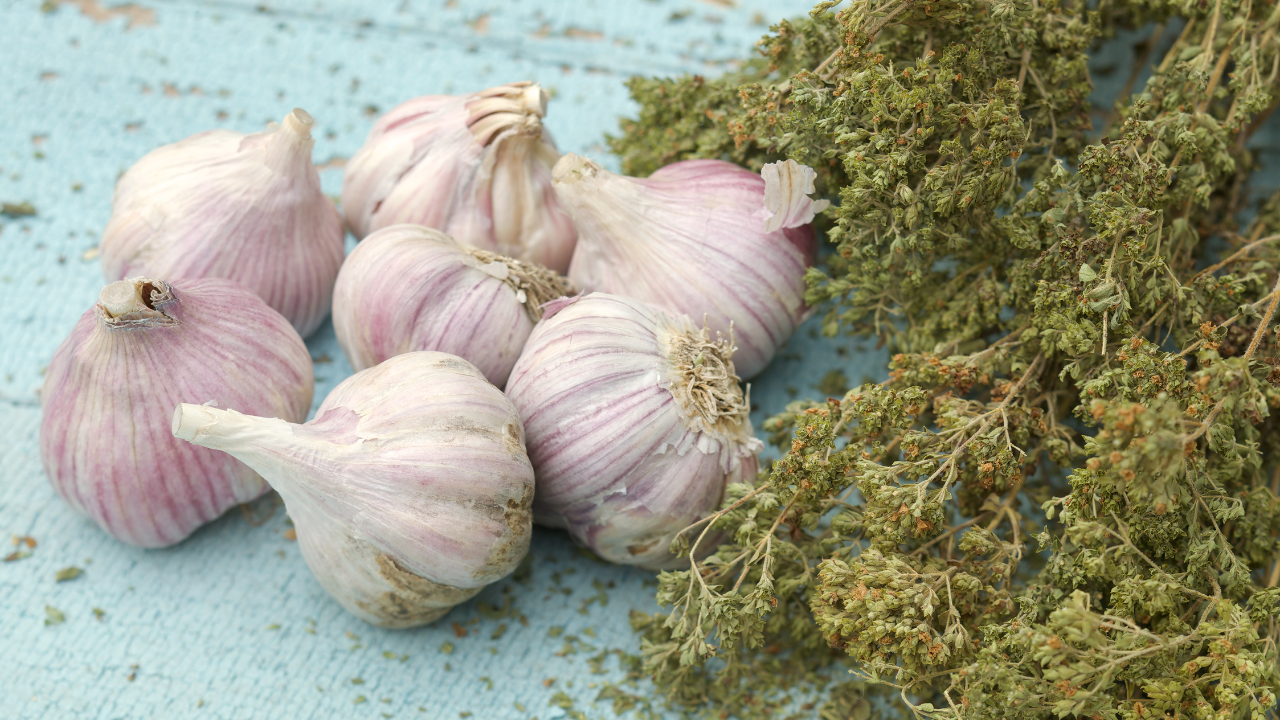IBS and SIBO: The Important Link Between These Two Conditions
SIBO (Small Intestinal Bacterial Overgrowth) is a hot topic these days in the gut-health and IBS community. You might have heard that many people with IBS (Irritable Bowel Syndrome) may also have SIBO.
Do you have IBS and are wondering if you may have SIBO? Or have you been told you may have SIBO from a natural health practitioner?
Before you start endless google searching and ordering a slew of fancy supplements, take 5-minutes to read this article. We are going to dive into the connection between IBS and SIBO, testing methods, and the overlap of symptoms between these conditions.
What is SIBO?
Small Intestinal Bacterial Overgrowth (SIBO) is a condition in which bacteria from the large intestine travels into the small intestine. The bacteria can cause inflammation in the small intestine and lead to symptoms such as abdominal pain, bloating, diarrhea and more. The bacteria in the small intestine may also result in the production of excess gas, further exacerbating the symptoms mentioned above.
While it is normal to have high levels of bacteria in our large intestine (colon), we are actually meant to have very little bacteria in our small intestine due to the rapid flow and presence of bile.
SIBO develops when the normal regulating mechanisms that control our intestinal bacterial populations are disrupted (1). The two processes that most commonly result in bacterial overgrowth in the small bowel are diminished stomach acid secretion and small intestine dysmotility (1). However, disturbances in the immune function of the gut immune function and anatomical changes or abnormalities (for example: surgical removal of part of the bowl) of the GI tract also increase the likelihood of developing SIBO (1).
SIBO and IMO
Diving into this further, SIBO has recently been recognized as 2 distinct diagnoses based on the types of microbes present:
Small Intestinal Bacterial Overgrowth (SIBO)
Intestinal Methanogen Overgrowth (IMO)
Both occur when microbes (bacteria or methanogens) normally present in the colon have moved into the small bowel and there is overgrowth.
However, in IMO there may also be overgrowth of methanogens in the colon, leading to symptoms like constipation, bloating, distention, and gas.
What is IBS?
IBS is a common digestive disorder that affects the large intestine. It causes symptoms like abdominal pain, bloating, gas and diarrhea. The exact cause of IBS is unknown, but it may be related to abnormal function of the gut and presence of low grade inflammation, dysbiosis, abnormal motility, and an enhanced gut-brain connection.
Learn more about IBS and my management approach in my article here.
Similarities between IBS, SIBO and IMO
SYMPTOM OVERLAP
The main similarities between IBS, SIBO and IMO are the overlapping symptoms. SIBO can technically be considered an underlying cause of IBS, as IBS is often diagnosed first before an SIBO diagnosis is made.
SIBO and IBS-D (Diarrhea dominant IBS) and IBS-M ( Mixed-type IBS) share many common symptoms. This includes:
Diarrhea (frequent loose stools)
Bloating
Fatigue
Abdominal pain and cramping
Gas
IMO and IBS-C (Constipation dominant IBS) also share these similar symptoms, such as abdominal bloating, pain and gas. However,contrary to SIBO and IBS-D, both result in constipation (infrequent and/or hard to pass stool).
MANAGEMENT STRATEGIES
In both cases of IBS and SIBO, the priority is to dig deeper on how these conditions may have developed and address them. From there, we would want to address any underlying issues, and then build on sustainable nutrition & lifestyle strategies to repair gut-health and build up a healthy, balanced microbiome for the long-term.
Strategies that help to manage symptom flare-ups, lower inflammation and support motility for IBS and SIBO include a low-FODMAP diet, adequate fibre, tailored prebiotic and probiotic supplements, stress management, sleep hygiene, hydration, meal hygiene (chewing, meal spacing) and limiting gut irritants (such as carbonated drinks, spicy foods, saturated fats, alcohol, excess caffeine, and fried foods).
However in the case of SIBO, treatment for the overgrowth is also required, which I will get into below.
Differences with IBS & SIBO
Let’s review the key differences with IBS and SIBO in terms of symptoms, treatment, and diagnosis.
SYMPTOMS
Unlike with IBS, in SIBO there may also be symptoms such as early fullness (feeling very full quickly and/or with small amounts of food). In severe cases of SIBO, fat malabsorption, iron and/or fat-soluble vitamin deficiency (Vitamins A, D, E, K) may also occur. In addition, unlike with IBS alone, the bloating and distension tends to be very persistent and may show up quickly (5-15 minutes) after eating meals.
TREATMENT
The other difference is with treatment; if SIBO is diagnosed, then either antibiotics or anti-microbials will be required to help eradicate the SIBO or IMO. Managing the IBS that comes with SIBO is unlikely to be very effective until the SIBO or IMO has been treated.
Following this, addressing the root cause of SIBO or IMO, as well as restoring stomach acid and supporting motility to prevent recurrence is essential.
With IBS alone (without the presence of SIBO), diet and lifestyle strategies can be sufficient. There are medications for IBS, however in my practice I recommend focusing on diet and lifestyle strategies first as medications often come with side effects and do not address the root cause.
TESTING & DIAGNOSTIC METHODS
Diagnosing & Testing for SIBO
The gold standard test for SIBO is by performing a hydrogen breath test that measures the amount of hydrogen gas that is produced in the small intestine after a meal. This test has been around since the 1960s and it is still considered the best way to test for SIBO. The reason why this test is so accurate is because your body only produces hydrogen gas when certain types of bacteria break down carbohydrates and sugars that you eat into hydrogen and carbon dioxide.
With this test, the patient drinks a solution containing lactulose and then has their breath analyzed to determine if there are abnormal levels of hydrogen and methane.
While these tests can be helpful in determining if you have SIBO, they aren't perfect and we don’t yet have a gold standard. Sometimes they can falsely indicate that someone has it when they don't actually have the condition at all.
It’s important to look at the full clinical picture, and also look at bloodwork, symptoms and patient report to get a full diagnosis. As such, many doctors rely on clinical judgment to determine whether or not their patient may have SIBO before ordering any testing at all.
I also support this approach in my practice, and look at a combination of symptom report, interventions tried, and lab work (CRP, ferritin, B12, CBC, liver enzymes, folate), to determine if SIBO may be likely. If so, then we would arrange for testing privately or in correspondence with a client’s GP or GI.
Diagnosing & Testing for IBS
IBS has no specific medical test (blood test, x-ray, scope, etc.) quite yet. It is usually diagnosed after other gastrointestinal conditions that may cause digestive symptoms are ruled out, such as Crohn's or colitis, celiac disease, parasite infection, anemia, etc.
However, a specific CRITERIA is used, once more severe medical conditions are ruled out. This is known as the Rome IV Diagnostic Criteria for IBS (2):
Recurrent abdominal pain, on average, for at least one day per week in the last three months, associated with two or more of the following:
Related to defecation
Associated with a change in frequency of stool
Associated with a change in form (appearance) of stool
As per the Rome criteria (2): reliable only when there is no abnormal intestinal anatomy or abnormality in the biochemical (metabolic) process that would explain the symptoms. In other words, results from a physical examination and any tests are negative and appear normal.
Ruling Out Other Conditions
It’s important to note that before an IBS or SIBO diagnosis is made, over symptoms that also share similar symptoms like celiac’s disease, inflammatory bowel disease (crohn’s or ulcerative colitis) is ruled out.
Deeper Dive: Treatment and Management of SIBO
The first step to treating SIBO is to test for it. This allows you to ensure that you are treating the right type of SIBO and dysbiosis that you have.
The most common options for SIBO treatment are:
Herbals: garlic, oregano oil, thyme, and neem. The blend of these and duration is dependent on the clients underlying conditions and type of SIBO present.
Antibiotics: Rifixamin is the gold standard for SIBO, or a combination of rifaximin and neomycin for IMO.
Elemental diet
In my practice, I work with clients to coordinate with their Medical Doctor and decide if they would like to use antibiotics, or anti-microbial herbals. If clients wish to use herbals (as many prefer to start with this option as it is lower cost), then I provide clients with protocols for herbal supplements based on current evidence and my clinical experience and a plan to manage and prevent recurrence from their SIBO.
How I Work with SIBO & IBS as a Gut Health Dietitian
In my practice, if a client presents with SIBO type symptoms but does not have a diagnosis of SIBO, we would start with first-line strategies for digestive health including diet, lifestyle and mental health modifications for IBS symptom management and restore gut health.
If minimal improvement, then we will look into testing and treating SIBO/IMO. Although I’ve heard of many clients being advised to take a SIBO test before trying any diet and lifestyle strategies, I do not support this approach. As mentioned previously, the current testing methods (which are pricey) and have not gone through rigorous scientific testing, so there is a high rate of false positives, so we should not jump into testing if someone has not worked through foundational changes yet.
Majority of my IBS clients (80-90%) get relief from diet and lifestyle strategies alone and don’t require SIBO testing and treatment, so I don’t recommend testing earlier than necessary.
However, I work with clients with positive SIBO tests and sometimes we will arrange for SIBO testing as needed to dig deeper into their situation. When SIBO is present, we will work together on coordinating treatment, as well as addressing any underlying root causes, restoring motility and stomach acid, and repairing their gut-health to prevent the SIBO from recurring.
Final Thoughts
As you can see, the connection between IBS and SIBO is complex. However, it definitely needs to be recognized and addressed depending on a client’s individual situation.
In addition, there are still lots of details we don’t know about these conditions, and so new research is something I continue to monitor and look out for in order to best support my clients. With this said, there is lots we DO know about how to manage and treat these conditions, and I have guided many clients to success and feel confident with their gut-health.
If you’ve been struggling with IBS and/or SIBO, and want professional guidance and a roadmap to freedom, apply for 1-1 coaching in my Gut Harmony Method Program.












